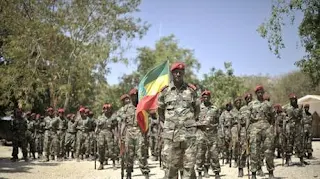An armed faction in Oromia, the largest state in Ethiopia in terms of area and population, killed “many civilians” in an attack launched 11 days after the end of negotiations with the government that did not lead to an agreement.
The "Oromo Liberation Army" faction, which Addis Ababa classifies as a "terrorist organization", has been fighting the Ethiopian authorities since its separation from the historic Oromo Liberation Front in 2018 when the latter renounced the armed struggle that year with the arrival of the current Prime Minister Abiy Ahmed to power.
In a statement, the Oromia government's communications official, Hailu Adonia, accused the Oromo Liberation Army of "committing horrific acts against peaceful citizens, and violently killing many citizens, in the Arsi area," south of the capital, without giving further details about the toll or the date of the attacks. .
In addition, Adonia considered that the faction “is still unwilling to return to the peaceful path,” stressing that it “continued its terrorist acts,” adding that the authorities are still open to negotiations.
On November 21, both the federal government and the Oromo Liberation Army held the other party responsible for the failure of negotiations in Tanzania that aimed to put an end to five years of rebellion.
The number of the "Oromo Liberation Army" was estimated at a few thousand men in 2018, and its number has increased significantly in recent years, although observers consider it not sufficiently organized or armed to pose a real threat to the Ethiopian federal authority.
The Oromo people's region extends from center to south, and from east to west, over about a third of Ethiopia's territory, and a third of the population of the second largest country in Africa in terms of population, 120 million people, lives there.
It is witnessing various acts of violence, making the situation very ambiguous, with internal political conflicts, land disputes, and hostilities between local communities, in addition to the recent spread of armed banditry.





